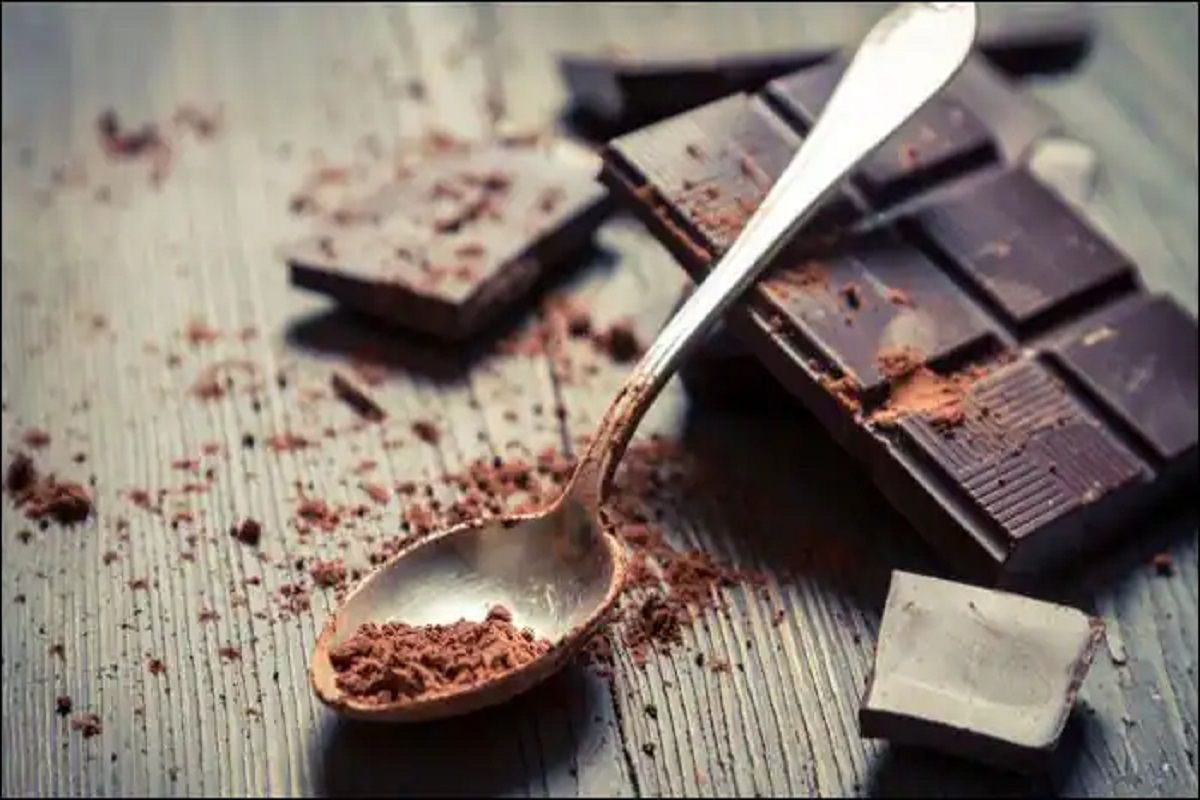Health Benefits of Eating Dark Chocolate: A Nutrient-Rich Delight
Dark chocolate, a delectable indulgence with a deep and robust flavor, has captured the hearts and taste buds of many around the world. Beyond its irresistible taste, dark chocolate holds a treasure trove of nutrients that can contribute to your well-being. This article explores the nuances of dark chocolate, from its nutritional profile to its potential health benefits and considerations.
Understanding Dark Chocolate
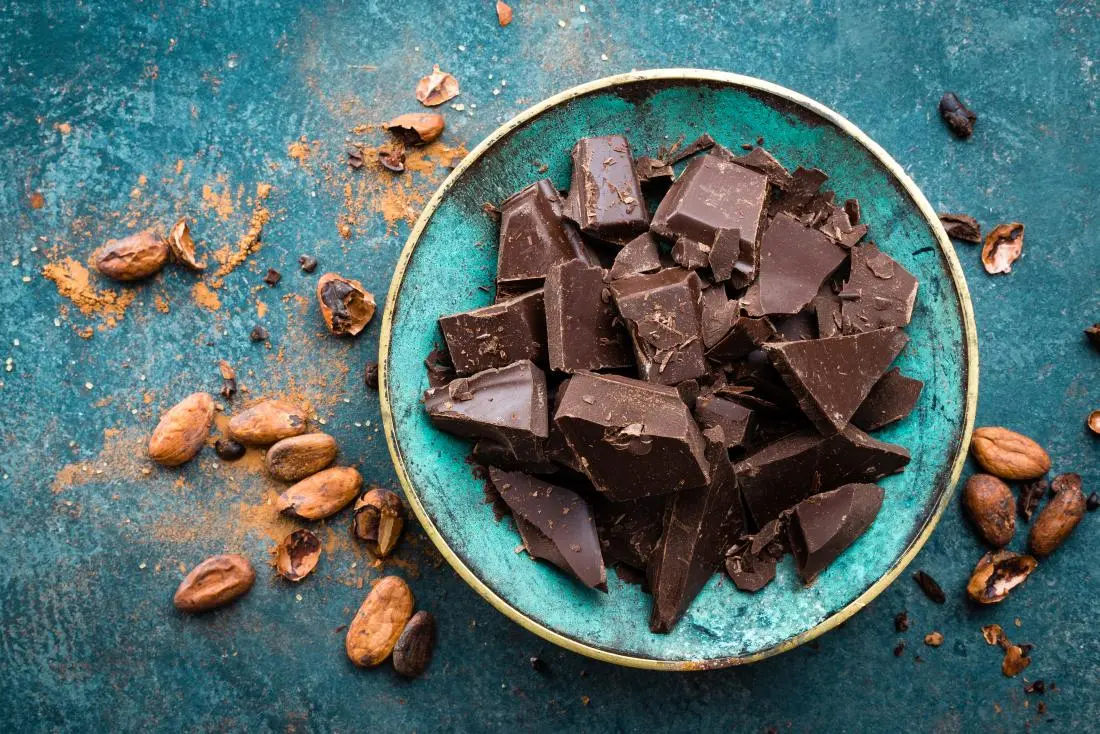
Dark chocolate is distinct from its sweeter counterparts due to its higher cocoa content and lower sugar content. Cocoa is the star ingredient, loaded with essential nutrients that have been linked to various health benefits. It's a powerhouse of flavonoids, antioxidants, and minerals such as iron, magnesium, and zinc. These components form the foundation of dark chocolate's potential positive impact on health.
Nutrients that Positively Affect Your Health
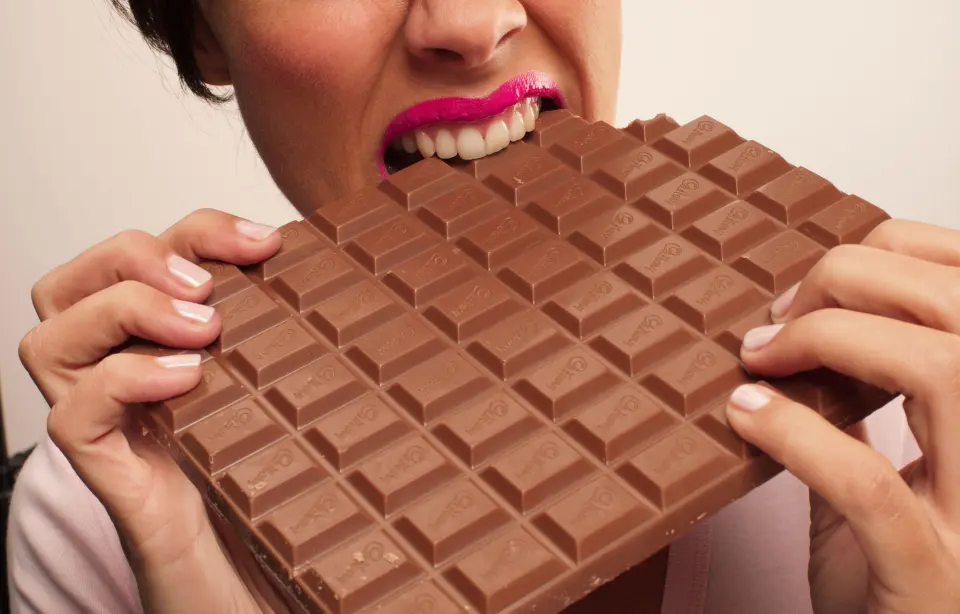
1. Antioxidants: Dark chocolate is packed with antioxidants, such as flavonoids and polyphenols, which help combat oxidative stress and reduce inflammation in the body.
2. Heart Health: The flavonoids in dark chocolate may contribute to heart health by improving blood flow, reducing blood pressure, and enhancing vascular function.
3. Brain Function: Some studies suggest that the compounds in dark chocolate could potentially boost cognitive function and support brain health.
4. Mood Enhancement: Dark chocolate contains serotonin precursors, which can help improve mood and promote a sense of well-being.
Health Benefits of Consuming Dark Chocolate

1. Antioxidant Protection: The antioxidants in dark chocolate can help neutralize harmful free radicals in the body, thereby reducing the risk of chronic diseases.
2. Improved Heart Health: Regular consumption of moderate amounts of dark chocolate has been associated with lower blood pressure, reduced risk of heart disease, and improved blood circulation.
3. Enhanced Mood: Dark chocolate contains compounds that stimulate the release of endorphins and serotonin, potentially contributing to improved mood and reduced stress.
4. Brain Boost: Flavonoids in dark chocolate may enhance blood flow to the brain, which could lead to improved cognitive function and better memory.
Considerations and Potential Disadvantages
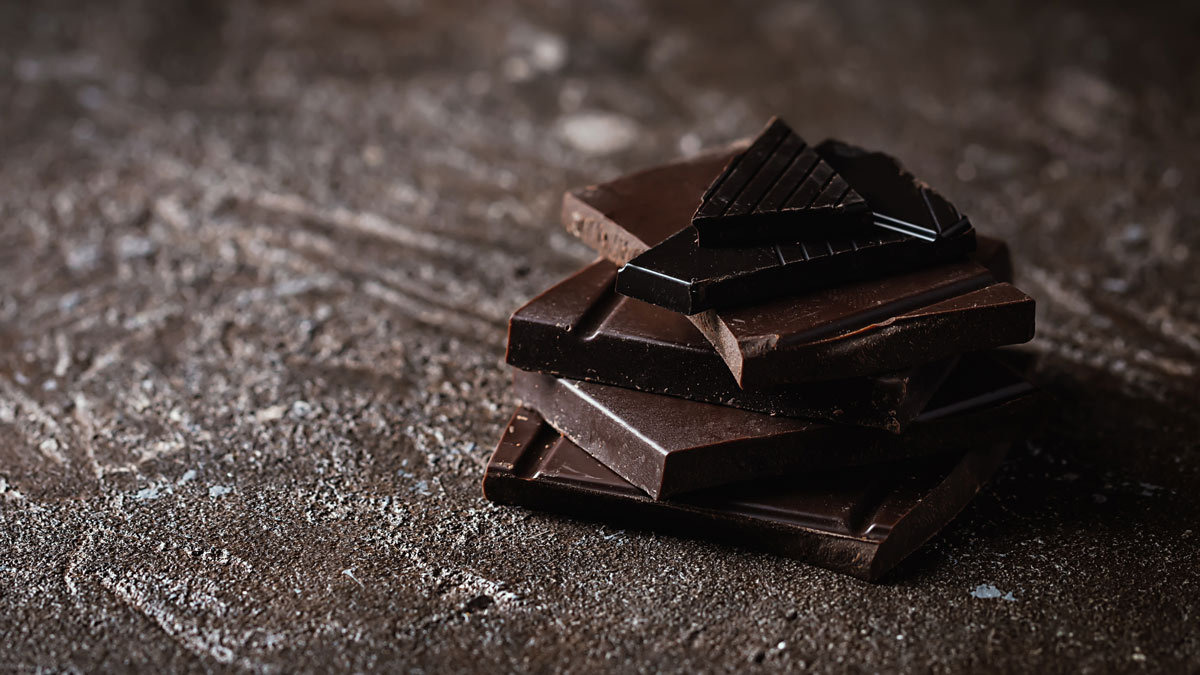
While dark chocolate offers an array of health benefits, moderation is key. Excessive consumption can lead to unwanted consequences:
1. Caloric Content: Dark chocolate is calorie-dense, so overindulgence can contribute to weight gain.
2. Sugar and Fat: While dark chocolate contains less sugar than milk chocolate, it still contains some sugar and fat. Monitoring portions is crucial to avoid excessive sugar and calorie intake.
3. Caffeine and Theobromine: Dark chocolate contains caffeine and theobromine, which can be stimulating. Individuals sensitive to these compounds should be mindful of their intake, especially close to bedtime.
4. Interference with Medications: Certain compounds in dark chocolate may interact with medications. Consult a healthcare professional if you have concerns.
Savoring Dark Chocolate Mindfully

Dark chocolate, with its intricate blend of flavors and potential health benefits, can be a delightful addition to your diet when consumed mindfully and in moderation. Choose varieties with higher cocoa content, lower added sugars, and enjoy it as part of a balanced lifestyle. Remember that while dark chocolate can contribute to your well-being, maintaining a varied and nutrient-rich diet is essential for overall health.
How to make dark chocolate at home?
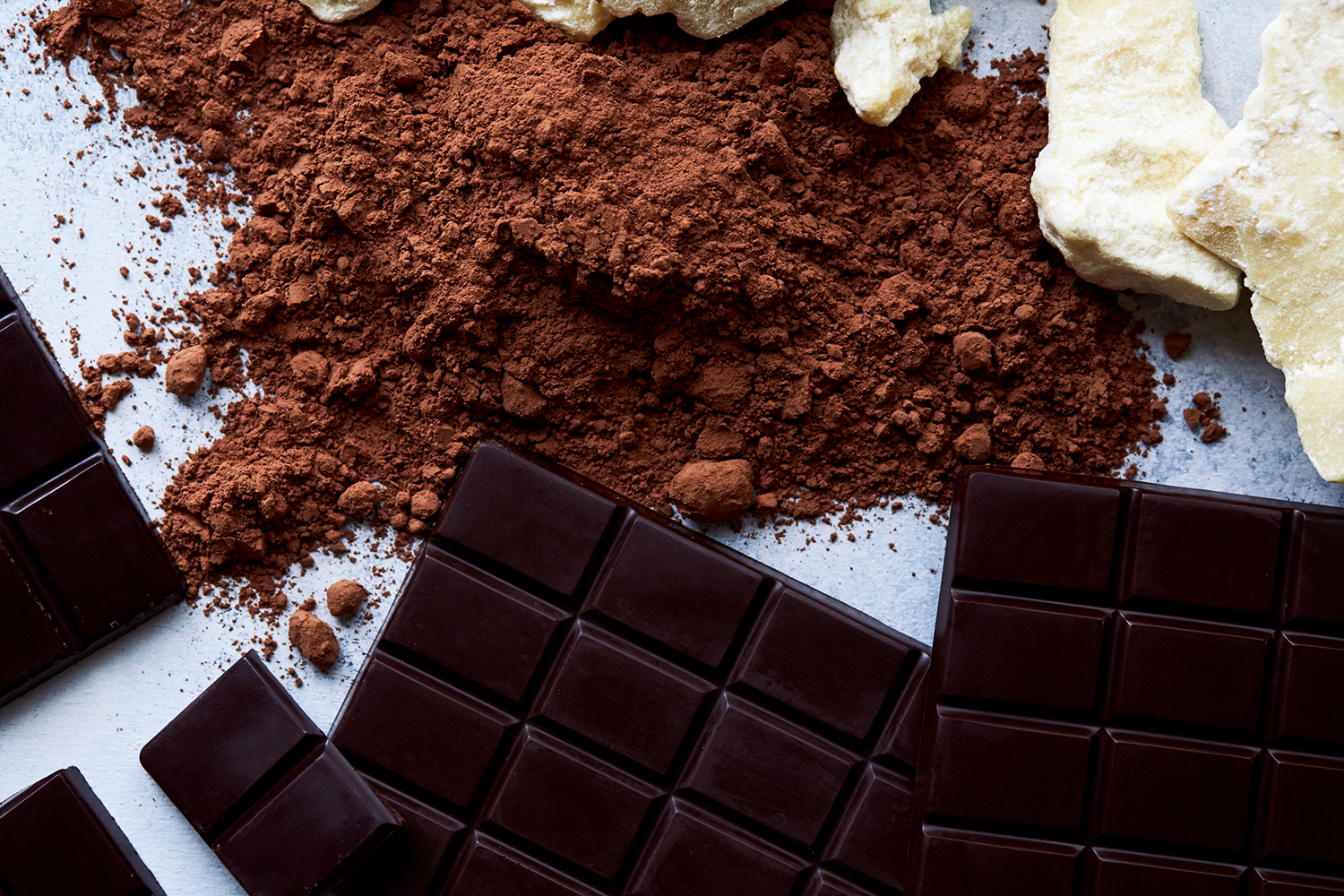
Creating your very own dark chocolate at home is not only a rewarding experience but also allows you to customize flavors and ingredients to suit your preferences. While professional chocolatiers have mastered the art, making homemade dark chocolate is simpler than you might think. Here's a step-by-step guide to crafting your own delectable dark chocolate:
Ingredients You'll Need:
1. Cocoa Beans or Cocoa Powder: The star ingredient that gives dark chocolate its distinct flavor.
2. Sweetener: Options include honey, maple syrup, agave nectar, or coconut sugar.
3. Cocoa Butter: Essential for texture and creaminess.
4. Optional Add-ins: Vanilla extract, nuts, dried fruits, sea salt, or spices for added flavor and texture.
5. Step-by-Step Guide:
Direction of Use:
1. Roast the Cocoa Beans (If Using Whole Beans): If you're starting with cocoa beans, roast them in the oven at a low temperature (around 250°F or 120°C) for about 20-30 minutes. This process develops the beans' flavors and removes excess moisture.
2. Crack and Winnow the Beans: Remove the outer shells from the roasted cocoa beans to extract the nibs. This step can be a bit time-consuming, but it's essential for the final texture of your chocolate.
3. Grind the Nibs: Using a high-quality food processor or grinder, grind the cocoa nibs into a fine paste. This process releases cocoa butter and begins to transform the nibs into a smoother consistency.
4. Add Sweetener and Cocoa Butter: Gradually incorporate your chosen sweetener (adjust to taste) and melted cocoa butter into the ground cocoa paste. The cocoa butter enhances the creaminess of your chocolate.
5. Conche the Mixture (Optional): Conching involves continuously stirring and grinding the mixture to further refine the texture and flavors. While this step isn't essential for homemade chocolate, it contributes to a smoother texture.
6. Pour into Molds: Pour the chocolate mixture into molds of your choice. You can use silicone molds, ice cube trays, or even a lined baking dish.
7. Add Optional Add-ins: If you'd like to personalize your dark chocolate, sprinkle in nuts, dried fruits, spices, or a pinch of sea salt before the chocolate sets.
8. Chill and Set: Place the molds in the refrigerator to allow the chocolate to solidify. This usually takes a few hours.
9. Unmold and Enjoy: Once your homemade dark chocolate has set, carefully remove it from the molds. Break it into pieces or bars and savor your creation.
Tips for Success:
1. Use high-quality ingredients for the best results.
2. Experiment with different sweeteners and add-ins to find your favorite flavor profile.
3. Be patient with the grinding process, as it's crucial for achieving a smooth texture.
4. Don't hesitate to adjust sweetener quantities to your taste preference.
5. Store your homemade dark chocolate in an airtight container in a cool, dry place.
Crafting dark chocolate at home is a delightful way to explore your creativity and enjoy a wholesome treat. From the roasting of cocoa beans to the incorporation of flavors, every step allows you to engage with the chocolate-making process on a personal level. So, gather your ingredients, embrace your inner chocolatier, and indulge in the art of homemade dark chocolate.
Eating Dark Chocolate during Menstruation (Periods)
.jpg)
Consuming dark chocolate during menstruation (periods) can offer some potential benefits for women. However, it's important to note that individual responses can vary, and the effects may not be the same for everyone. Here are a few ways in which dark chocolate could potentially provide benefits during periods:
1. Mood Enhancement: Dark chocolate contains compounds such as theobromine and phenylethylamine, which are known to have mood-enhancing effects. These compounds might help alleviate mood swings, irritability, and feelings of sadness that some women experience during their menstrual cycle.
2. Magnesium Content: Dark chocolate is a source of magnesium, a mineral that can help relax muscles and reduce cramping. Consuming magnesium-rich foods, including dark chocolate, may contribute to easing menstrual cramps and discomfort.
3. Iron Boost: Some women may experience a drop in iron levels during their periods, leading to fatigue and weakness. Dark chocolate contains small amounts of iron, which could provide a mild boost to iron levels.
4. Endorphin Release: Eating dark chocolate can trigger the release of endorphins, which are natural "feel-good" chemicals in the brain. This can potentially help improve overall mood and alleviate feelings of stress and discomfort.
5. Source of Energy: Dark chocolate contains carbohydrates that can provide a quick source of energy. This can be beneficial if you're experiencing fatigue or low energy levels during your period.
6. Indulgence and Comfort: Let's not forget the emotional aspect. Treating yourself to a small piece of dark chocolate can provide comfort and a sense of indulgence during a time when many women might be dealing with discomfort and hormonal fluctuations.
However, it's important to approach consuming dark chocolate during your period in moderation. While dark chocolate offers potential benefits, it's still a calorie-dense food, and excessive consumption could lead to unwanted weight gain or other health issues. Additionally, some people might be sensitive to caffeine or other compounds in chocolate, which could affect their sleep or exacerbate other symptoms.
Skin benefits associated with consuming dark chocolate

There are potential skin benefits associated with consuming dark chocolate, thanks to its rich content of antioxidants, vitamins, and minerals. However, it's important to note that while dark chocolate may offer some benefits for the skin, individual responses can vary, and moderation is key. Here are some potential skin benefits of eating dark chocolate:
1. Antioxidant Protection: Dark chocolate is loaded with antioxidants, particularly flavonoids and polyphenols. These compounds help combat oxidative stress and free radical damage, which can contribute to premature aging and skin issues. Antioxidants play a role in maintaining healthy, youthful-looking skin.
2. Improved Skin Texture: The flavonoids in dark chocolate may enhance blood flow to the skin, which could lead to improved skin texture and a natural glow. Better circulation can contribute to a healthy complexion.
3. Sun Protection: Some studies suggest that the flavonoids in dark chocolate might offer a certain level of protection against harmful UV rays. While this doesn't replace proper sun protection measures like sunscreen, it's an interesting potential benefit.
4. Moisturization: Dark chocolate contains healthy fats, which can contribute to skin hydration and moisture retention. This can be particularly beneficial for those with dry or dehydrated skin.
5. Stress Reduction: High-quality dark chocolate contains compounds that can stimulate the release of endorphins, the body's natural "feel-good" chemicals. Reduced stress and improved mood can indirectly benefit the skin by reducing the likelihood of stress-induced breakouts.
6. Collagen Support: The flavonoids in dark chocolate might also contribute to collagen production, which is essential for maintaining skin elasticity and firmness. Collagen is responsible for keeping the skin looking youthful and plump.
7. Acne Reduction: Some individuals have reported improvements in acne-prone skin after consuming moderate amounts of dark chocolate. This could be due to the anti-inflammatory properties of dark chocolate's antioxidants.
8. Hydration: Dark chocolate contains minerals like copper and zinc, which play a role in skin health. Copper is involved in collagen production, while zinc helps regulate oil production and supports the skin's natural barrier.
9. Skin Repair: The antioxidants in dark chocolate may help repair and rejuvenate skin cells damaged by environmental factors.
10. Overall Well-Being: While not a direct skin benefit, the potential mood-boosting effects of dark chocolate could indirectly contribute to better skin health. Reduced stress and improved mood can reflect positively on the skin's appearance.

